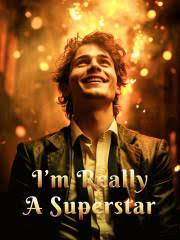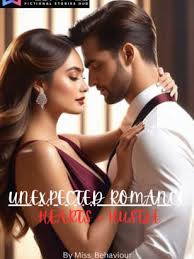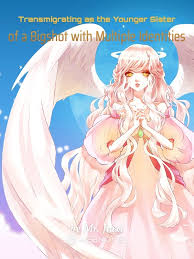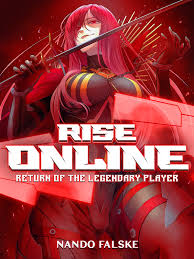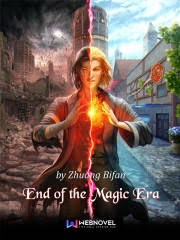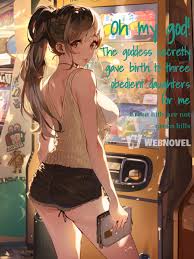The Story in 3 Sentences
Zhang Ye, an unremarkable college graduate with dreams of stardom but cursed with average looks and height, wakes up in a parallel world where famous works of art, literature, and celebrities from his original Earth no longer exist.
Armed with a mystical Game Ring that grants him skills, stats, and items, he begins plagiarizing Earth’s greatest cultural achievements—poems, TV formats, songs, and more—to climb the ladder of fame in this new reality.
As his influence grows through viral performances, national broadcasts, and global spectacles, Zhang Ye becomes both a beloved icon and a polarizing force, reshaping entertainment while facing escalating consequences from his actions and ideology.
Why It Stands Out
1. The Ultimate Cultural Heist
Instead of martial arts or magic, the protagonist wields Shakespeare, Li Bai, and Hollywood scripts like weapons, turning literary theft into a comedic engine that drives national pride, viral fame, and absurd courtroom dramas—all wrapped in a modern urban setting rarely seen in xianxia-inspired storytelling.
2. Reaction Porn as Narrative Architecture
Every major arc culminates in meticulously choreographed “reaction chapters” where crowds weep, critics kneel, and enemies collapse in awe—not from power levels, but from the emotional weight of a well-recited sonnet or a perfectly timed TV show premiere, making audience response the true measure of victory.
3. A Mirror Cracked by Nationalism
What begins as a lighthearted fantasy of second chances curdles into a provocative, often uncomfortable exploration of cultural ownership, where the line between tribute and theft blurs, and the hero’s “China-first” zeal alienates as much as it inspires—forcing readers to question who really owns art in a world without it.
Characters That Leave a Mark
There’s Wu Zeqing – the sharp, high-profile media executive whose professional rivalry with Zhang Ye evolves into a complex partnership, anchoring some of the story’s most emotionally grounded moments, including their highly anticipated wedding that shocks the nation .
You’ll meet Rao Aimin, who emerges during the martial arts arc as a mysterious figure tied to Zhang Ye’s past, her sudden reappearance triggering both action-packed confrontations and revelations about loyalty in a world obsessed with fame .
And Old Wu? They’re the one who bridges generations through Chinese chess, their father a legendary player whose legacy becomes central to the AI-versus-human showdown against the unbeatable PETER system—a clash of tradition, intellect, and national honor .
The Flaws Fans Debate
The narrative falls into a rigid, repetitive cycle: Zhang Ye joins a new field, excels via plagiarism, faces a cartoonishly jealous antagonist, and delivers a “face-smacking” victory—repeated across poetry, TV, music, and even hacking arcs until it numbs the reader.
Rampant nationalism and xenophobic portrayals—especially of Korean and Japanese characters as inherently malicious or inferior—turn what could be patriotic pride into offensive caricature, drawing widespread criticism from international and even domestic Chinese readers [[3], [5], [10]].
Romantic subplots often veer into uncomfortable territory, with non-consensual physical contact, power imbalances, and “groping while asleep” tropes that clash jarringly with the novel’s otherwise comedic and inspirational tone, leading many to label the protagonist as hypocritical or predatory.
Must-Experience Arcs
Ch. 110–124: Couplet Competition Arc – Zhang Ye faces off in a high-stakes classical poetry duel, using forgotten Chinese literary forms to humiliate elite scholars and ignite his first wave of national fame.
Ch. 800–850: King of the Mask Singer Arc – Banned from public performance, Zhang Ye secretly creates and participates in a masked singing competition, blending mystery, vocal talent, and dramatic unmasking to reclaim his place in entertainment .
Ch. 1600–1650: Final Concert & Hacker Arc – After rolling a difficulty-increasing dice, Zhang Ye stages Asia’s largest farewell concert at the Olympics Stadium before surrendering for cybercrimes, merging spectacle, sacrifice, and systemic critique in a bittersweet climax .
Killer Quotes
“Everywhere, red flowers make it red everywhere / Green tree groves are lush green.”
“Without Director Jiang’s trust and support, we wouldn’t be here today.”
“As an excellent artist, Zhang Ye had mixed feelings. Did he have any regrets in life? No, his life was perfect.”
Cultural Impact
The novel sparked intense debate in global webnovel communities, with fans coining the term “plagiarism power fantasy” to describe its unique—and ethically fraught—premise.
Reaction chapters became meme templates across Reddit and Webnovel forums, with users parodying crowd responses like “Heavens! This passage is godly!” to mock over-the-top emotional writing .
Despite—or because of—its controversial nationalism, it gained a cult following among readers who treat it as ironic satire, while others defend it as a celebration of Chinese cultural heritage in a globalized fiction space .
Final Verdict
Start Here If You Want:
A hilarious, fast-paced ride where classical poetry defeats corporate villains and TV show formats become weapons of mass adoration.
A protagonist who weaponizes Earth’s greatest hits to build fame from nothing, blending slice-of-life charm with absurd xianxia-style escalation.
Endless “face-smack” satisfaction wrapped in modern Chinese pop culture, perfect for readers who love underdog triumphs with zero subtlety.
Study If You Love:
The deconstruction of authorship and originality in digital-age storytelling, where cultural memory becomes a tradable resource.
How webnovels repurpose xianxia tropes—cultivation, trials, reputation—into non-fantasy urban settings through systems like the Game Ring.
The tension between national pride and global ethics in transnational fanfiction, especially when real-world art is recontextualized as “lost” in a parallel universe.
Avoid If You Prefer:
Stories with consistent moral grounding or nuanced international representation, as foreign characters are frequently reduced to strawman villains.
Non-repetitive plotting; the novel’s formulaic structure becomes glaring after 500+ chapters of near-identical victory arcs.
Romantic dynamics built on consent and equality, given the protagonist’s recurring boundary-crossing behavior toward female characters.
